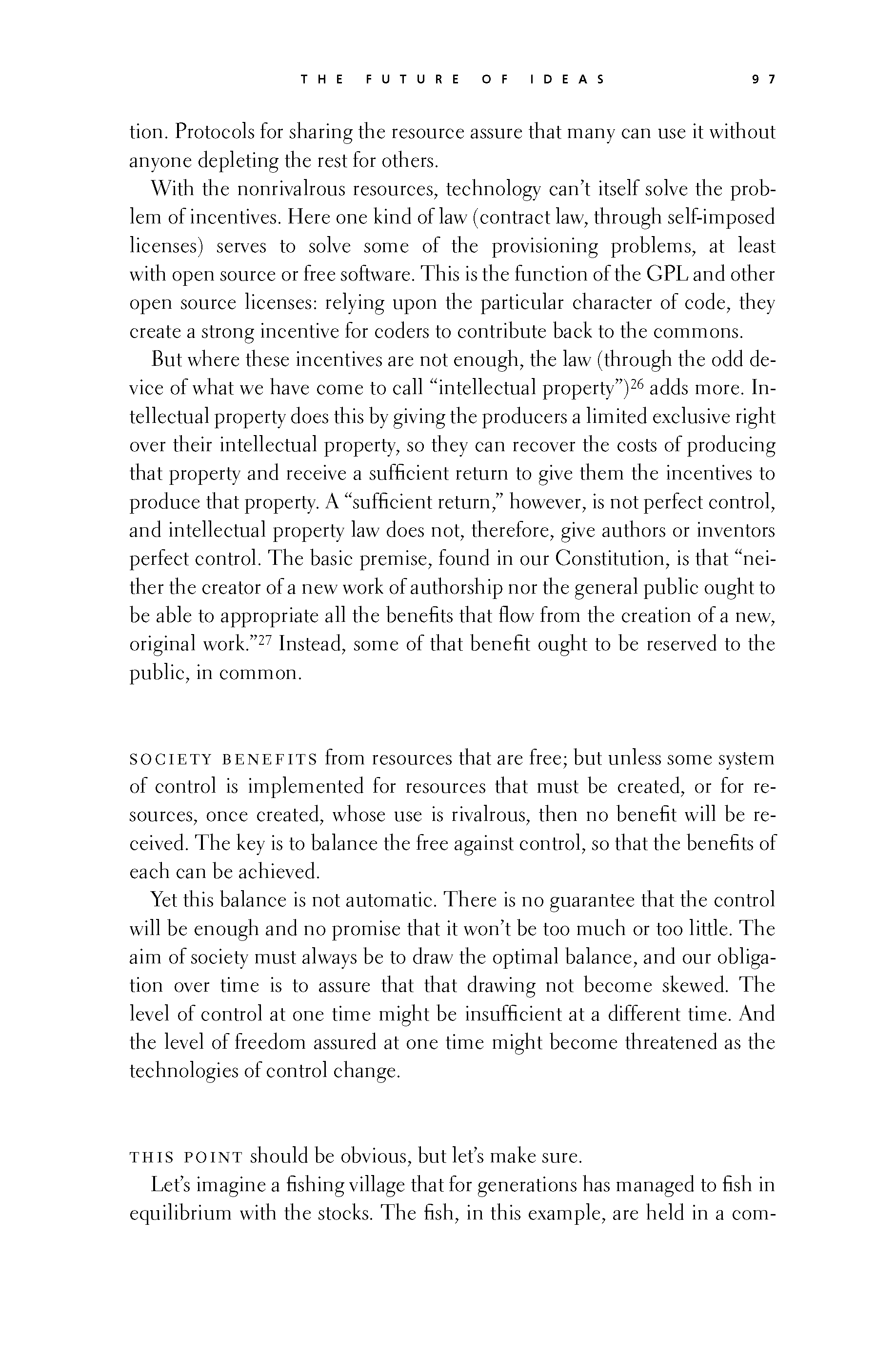 p096 _
-chap- _
toc-1 _
p097w _
toc-2 _
+chap+ _
p098
p096 _
-chap- _
toc-1 _
p097w _
toc-2 _
+chap+ _
p098
tion. Protocols for sharing the resource assure that many can use it without
anyone depleting the rest for others.
With the nonrivalrous resources, technology can't itself solve the prob-
lem of incentives. Here one kind of law (contract law, through self-imposed
licenses) serves to solve some of the provisioning problems, at least
with open source or free software. This is the function of the GPL and other
open source licenses: relying upon the particular character of code, they
create a strong incentive for coders to contribute back to the commons.
But where these incentives are not enough, the law (through the odd de-
vice of what we have come to call "intellectual property")[6-26] adds more. In-
tellectual property does this by giving the producers a limited exclusive right
over their intellectual property, so they can recover the costs of producing
that property and receive a sufficient return to give them the incentives to
produce that property. A "sufficient return," however, is not perfect control,
and intellectual property law does not, therefore, give authors or inventors
perfect control. The basic premise, found in our Constitution, is that "nei-
ther the creator of a new work of authorship nor the general public ought to
be able to appropriate all the benefits that flow from the creation of a new,
original work."[6-27] Instead, some of that benefit ought to be reserved to the
public, in common.
///\\\
Society benefits from resources that are free; but unless some system
of control is implemented for resources that must be created, or for re-
sources, once created, whose use is rivalrous, then no benefit will be re-
ceived. The key is to balance the free against control, so that the benefits of
each can be achieved.
Yet this balance is not automatic. There is no guarantee that the control
will be enough and no promise that it won't be too much or too little. The
aim of society must always be to draw the optimal balance, and our obliga-
tion over time is to assure that that drawing not become skewed. The
level of control at one time might be insufficient at a different time. And
the level of freedom assured at one time might become threatened as the
technologies of control change.
///\\\
This point should be obvious, but let's make sure.
Let's imagine a fishing village that for generations has managed to fish in
equilibrium with the stocks. The fish, in this example, are held in a com-
[[97]]
p096 _
-chap- _
toc-1 _
p097w _
toc-2 _
+chap+ _
p098